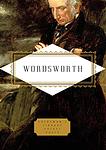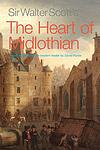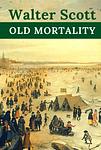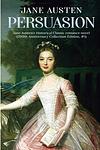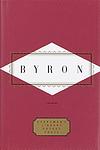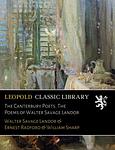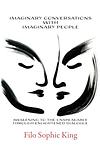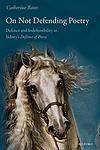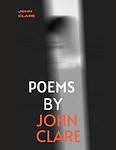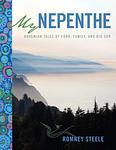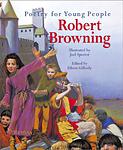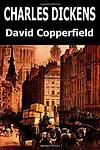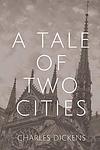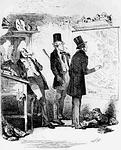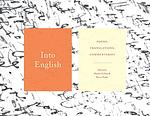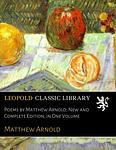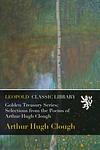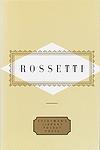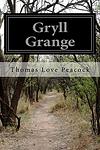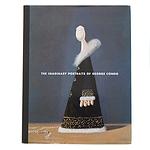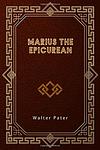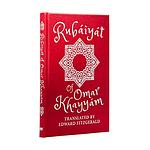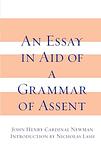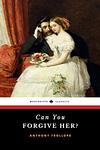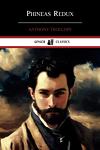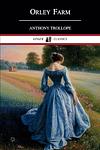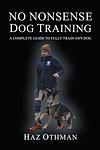Harold Bloom's The Western Canon
This is one of the 300 lists we use to generate our main The Greatest Books list.
-
The Dance Of Death by August Strindberg
"The Dance of Death" is a darkly comedic play that delves into the tumultuous and decaying marriage of Edgar and Alice, an aging military captain and his wife, who are living in an isolated fortress. As they engage in psychological warfare, their toxic relationship is laid bare, revealing deep-seated resentment, bitterness, and a twisted dependency on one another. The arrival of Kurt, Alice's cousin, further intensifies the situation, as old wounds are reopened and the characters are forced to confront the reality of their lives and the destructive nature of their bond. The play is a stark exploration of marital strife, the human condition, and the intricate and often destructive dance that is human relationships.
The 7152nd Greatest Book of All Time -
The Ghost Sonata by August Strindberg
The play delves into the dark and mysterious world of a young student who, after a chance encounter, becomes entangled in the lives of the residents of a haunted house. As he becomes more involved, he is exposed to the deceit, betrayal, and moral decay that lie beneath the surface of the seemingly respectable household. The narrative unfolds through a series of surreal and ghostly events, revealing the psychological and existential struggles of the characters as they grapple with their past sins, illusions of love, and the search for redemption and truth in a world filled with secrets and specters.
The 5877th Greatest Book of All Time -
A Dream Play by August Strindberg
In the play, the audience is taken on a surreal journey through the dreamlike experiences of the daughter of a god who descends to Earth to better understand human suffering. The narrative defies conventional time and space, weaving together a series of disjointed scenes that reflect the illogical and fluid nature of dreams. The characters she encounters are trapped in their own cycles of misery, their lives marked by frustration, disappointment, and the futility of their pursuits. The dreamer navigates this shifting landscape, attempting to find meaning and compassion within the chaos, ultimately revealing the universal struggles of the human condition.
The 7152nd Greatest Book of All Time -
Poems Of Robert Burns by Robert Burns
This collection showcases the lyrical genius of a celebrated Scottish poet, renowned for his pioneering use of the Scots language and his profound influence on the Romantic movement. The anthology includes a rich variety of poems, ranging from heartfelt songs of love and friendship to biting satires and social commentaries. The poet's works reflect his deep connection to the Scottish countryside, his empathy for the common man, and his passionate advocacy for social equality. His enduring legacy is evident in the timeless appeal of his verses, which continue to resonate with readers around the world, capturing the universal human experience with wit, emotion, and eloquence.
The 2393rd Greatest Book of All Time -
The Complete Poetry and Prose of William Blake by William Blake
This comprehensive collection features the complete works of a renowned 18th-century English poet and artist, known for his symbolic and critical approach to societal issues. It includes all his prophetic and illuminated poetry, prose, sketches, and illustrations, providing a deep insight into his visionary and revolutionary mind. The book also contains annotations and commentary, making it an invaluable resource for understanding the depth and breadth of the author's philosophical and artistic contributions.
The 680th Greatest Book of All Time -
The Poetical Works Of William Wordsworth by William Wordsworth
This anthology is a comprehensive collection of the lyrical and philosophical poetry of a prominent English Romantic poet, known for his deep love of nature and his innovative use of language and verse. The volume spans the poet's entire career, featuring both well-known and lesser-known works, including his "Lyrical Ballads," which helped to launch the Romantic Age in English literature. The poems reflect the poet's meditations on humanity, the natural world, and the interplay between the two, often exploring themes of memory, mortality, and the transformative power of the imagination.
The 2011th Greatest Book of All Time -
The Prelude by William Wordsworth
"The Prelude" is an autobiographical, epic poem that explores the author's spiritual growth and development. The narrative takes the reader through the poet's childhood and youth, his experiences in the French Revolution, and his subsequent disillusionment. It also delves into his relationship with nature, which he sees as a powerful, spiritual force that has shaped his life and consciousness. The poem is a reflection on the poet's personal journey towards understanding his own mind and the world around him.
The 769th Greatest Book of All Time -
Waverley by Sir Walter Scott
Set during the Jacobite uprising of 1745, this historical novel follows the story of Edward Waverley, an English gentleman who is sent to Scotland by his father. There, he becomes embroiled in the rebellion, torn between his loyalty to his family and the king, and his sympathy for the Jacobite cause. The novel explores the complexities of politics, culture, and identity during this turbulent period in Scottish history.
The 1069th Greatest Book of All Time -
The Heart Of Midlothian by Sir Walter Scott
The novel is a historical tale set in 18th-century Scotland, revolving around Jeanie Deans, a young woman of strong moral character, who embarks on a daunting journey from Edinburgh to London to seek a royal pardon for her wrongfully accused sister, Effie, who faces execution. Along the way, Jeanie encounters various characters from different strata of society, confronting issues of justice, morality, and national identity. Her steadfast loyalty and unwavering principles highlight the cultural and social tensions of the time, as the narrative intertwines personal drama with broader historical events, including the Porteous Riots and the influence of the Scottish Reformation.
The 872nd Greatest Book of All Time -
Redgauntlet by Sir Walter Scott
Set in the mid-18th century, the novel weaves a tale of political intrigue and personal struggle, centered around a Jacobite rebellion plot. The story follows a young man who, while on a journey to discover his family's past, becomes entangled in a secret plan to restore the Stuart monarchy to the British throne. As he navigates a world of clandestine meetings, coded letters, and disguised identities, he encounters historical figures and experiences the tension between loyalty to one's heritage and the reality of contemporary political power. The narrative explores themes of honor, betrayal, and the complexities of allegiance during a tumultuous period in Scotland's history.
The 2393rd Greatest Book of All Time -
Old Mortality by Sir Walter Scott
Set in the 17th century during the Covenanting Rebellion in Scotland, the novel weaves a tale of adventure, romance, and political intrigue around the historical events of the time. The story follows the young hero, Henry Morton, who is caught between his loyalty to the Presbyterian Covenanters and his love for Edith Bellenden, a Royalist. As Morton becomes embroiled in the conflict, he must navigate a path through the tumultuous civil war, facing moral dilemmas and the consequences of his choices. The narrative also explores themes of honor, tradition, and the impact of history on individual lives, all while providing a rich portrayal of Scottish culture and the complexities of religious and political loyalties.
The 1832nd Greatest Book of All Time -
Pride and Prejudice by Jane Austen
Set in early 19th-century England, this classic novel revolves around the lives of the Bennet family, particularly the five unmarried daughters. The narrative explores themes of manners, upbringing, morality, education, and marriage within the society of the landed gentry. It follows the romantic entanglements of Elizabeth Bennet, the second eldest daughter, who is intelligent, lively, and quick-witted, and her tumultuous relationship with the proud, wealthy, and seemingly aloof Mr. Darcy. Their story unfolds as they navigate societal expectations, personal misunderstandings, and their own pride and prejudice.
The 10th Greatest Book of All Time -
Emma by Jane Austen
The novel revolves around Emma, a well-meaning but disaster-prone matchmaker, who ignores her own romantic feelings while setting out to find a suitor for her friend Harriet. Her efforts cause more problems than solutions as she leaves a trail of mishaps behind her. As her plans go awry, Emma realizes that she herself may be the one in love. The book is a classic exploration of social manners, love, and marriage in 19th-century England.
The 94th Greatest Book of All Time -
Mansfield Park by Jane Austen
The novel follows the story of Fanny Price, a young girl from a poor family who is sent to live with her wealthy relatives at Mansfield Park. Despite being treated poorly by her relatives, Fanny grows up to be a virtuous and sensible woman. She quietly falls in love with her cousin Edmund, who is in love with a flirtatious and beautiful woman named Mary Crawford. The novel explores themes of morality, marriage, and the contrast between appearance and reality.
The 972nd Greatest Book of All Time -
Persuasion by Jane Austen
This classic novel revolves around the life of Anne Elliot, a woman of 27 who is unmarried and living with her vain, snobbish, and foolish family who are on the brink of financial ruin. Seven years prior, she had been persuaded to reject a marriage proposal from the man she loved, a poor but ambitious naval officer named Frederick Wentworth. When he returns from the war a wealthy and successful captain, old feelings are rekindled. The story follows Anne's journey towards self-realization and second chances at love amidst the complexities of her social class.
The 285th Greatest Book of All Time -
Poems And Prose by Samuel Taylor Coleridge
This collection is an amalgamation of the author's most profound works, showcasing a blend of both poetry and prose that delves into themes of nature, spirituality, and human emotion. The book features some of the writer's most celebrated poems, which are renowned for their lyrical beauty and philosophical depth, alongside lesser-known prose pieces that reveal the author's thoughts on literature, philosophy, and society. The juxtaposition of poetic and prosaic forms within the volume highlights the author's versatility and his ability to convey complex ideas with both concision and eloquence.
The 7152nd Greatest Book of All Time -
The Grasmere Journal by Dorothy Wordsworth
The book in question is a personal diary that offers an intimate glimpse into the daily life and natural surroundings of its author during her residence in the Lake District at the turn of the 19th century. It provides a detailed account of her observations of nature, her thoughts and feelings, as well as her experiences living with her famous poet brother. The journal is celebrated for its vivid descriptions of the landscape, the changing seasons, and the simple, yet profound, pleasures of rural life. It also serves as a valuable document of social and family history, reflecting the author's keen eye for detail and her deep appreciation for the beauty of the English countryside.
The 7152nd Greatest Book of All Time -
Essays And Criticism by William Hazlitt
"Essays and Criticism" is a collection of insightful and eloquent essays that delve into a wide range of topics, from art and literature to philosophy and social commentary. The author, a prominent 19th-century critic and essayist, showcases his ability to blend personal reflection with critical analysis, offering readers a deep exploration of human nature, creativity, and society. His work is celebrated for its clear, vigorous prose and its influence on the essay as a literary form, as well as for its timeless observations on the human condition. Through his writings, the author invites readers to consider the complexities of life and the enduring beauty of the arts.
The 2206th Greatest Book of All Time -
Don Juan: A Poem by Lord Byron
This epic satirical poem tells the story of Don Juan, a handsome, charming young man from Spain who gets into various adventures and romantic escapades throughout Europe and the Ottoman Empire. Throughout his journey, he encounters a variety of characters, including pirates, sultans, and aristocrats, while also engaging in numerous love affairs. The narrative, filled with humor, irony, and social commentary, serves as a critique of societal norms and conventions, particularly those related to love and morality.
The 916th Greatest Book of All Time -
Selected Poems of Lord Byron by Lord Byron
This collection of poems showcases the romantic and passionate work of one of the leading figures of the Romantic Movement. The writings explore themes of love, nature, and rebellion, often reflecting the author's own tumultuous life. The book includes some of his most famous works, such as "Don Juan," "Childe Harold's Pilgrimage," and "She Walks in Beauty," offering readers a glimpse into the mind of a complex and influential poet.
The 1084th Greatest Book of All Time -
The Poems Of Walter Savage Landor by Walter Savage Landor
This collection brings together the lyrical and evocative poetry of a renowned 19th-century English writer, known for his classical themes and mastery of poetic form. The poems reflect the author's intellectual depth, emotional range, and passion for beauty, exploring themes of love, loss, and the passage of time. His work is characterized by its precision, elegance, and the use of both traditional and innovative verse structures, revealing a poet deeply influenced by the ancients yet distinctly modern in his expression of the human experience.
The 7152nd Greatest Book of All Time -
Imaginary Conversations by Walter Savage Landor
"Imaginary Conversations" is a collection of prose dialogues that delve into a wide range of historical periods and topics, presenting fictional discussions between various historical and literary figures. These conversations, which blend fact with the author's creative speculation, explore themes such as politics, philosophy, and art, offering insights into the personalities and ideas of the interlocutors. The work is known for its eloquent language and intellectual depth, reflecting the author's own views on society, culture, and human nature through the voices of the distinguished characters he brings to life in these imagined exchanges.
The 7152nd Greatest Book of All Time -
Confessions of an English Opium-Eater by Thomas de Quincey
This book is a memoir that delves into the author's experiences with opium addiction. It offers a detailed account of his life before and after becoming an addict, providing a vivid picture of the physical, psychological, and emotional effects of opium usage. The author's exploration of the dreamlike states induced by the drug, combined with his philosophical reflections on pain, pleasure, and consciousness, make this work a unique blend of autobiography and psychological exploration.
The 2206th Greatest Book of All Time -
The Collected Writings Of Thomas De Quincey by Thomas de Quincey
This compilation brings together the diverse works of a notable 19th-century English essayist, known for his rich autobiographical narratives and insightful literary criticism. The collection spans a variety of topics, from personal confessions about his opium addiction to musings on murder, philosophy, and economics. The author's intricate prose and psychological depth offer readers a profound look into the human condition, as well as the social and cultural milieu of his time. His most famous piece within this anthology delves into the profound effects of drug dependency on the human psyche, a groundbreaking and candid exploration for its era.
The 7152nd Greatest Book of All Time -
Essays by Charles Lamb
The book is a collection of essays that blend autobiography, whimsy, fantasy, and pathos. The author, a noted English essayist, uses his own life experiences as a rich backdrop for his writing, often under the guise of a fictional character. His essays are celebrated for their wit, warmth, and eloquence, and they delve into a wide range of topics, from the joys of childhood to the complexities of human grief. The author's distinctive style and ability to transform the mundane into the extraordinary have secured his place as a master of the personal essay.
The 2393rd Greatest Book of All Time -
Castle Rackrent by Maria Edgeworth
"Castle Rackrent" is a satirical novel that chronicles the declining fortunes and ultimate ruin of a once noble Irish family through the eyes of their loyal and long-serving steward. The family's successive heirs each contribute to the downfall through their reckless extravagance, drunkenness, gambling, and overall mismanagement. The narrative provides a critique of the Anglo-Irish landlords of the time, highlighting their exploitation of the Irish peasantry and their disregard for the responsibilities that came with their privileged position.
The 640th Greatest Book of All Time -
The Entail by John Galt
"The Entail" is a classic Scottish novel that delves into the lives and fortunes of the Lairds of Grippy and their descendants. The story explores themes of ambition, morality, and the consequences of avarice as it follows the rise and fall of the family's estate, which is burdened by an entail—a legal restriction ensuring the property must be inherited by a specific line of heirs. The narrative, rich in its portrayal of 18th-century Scottish society, offers a satirical and critical look at the period's social and economic conditions, as well as the complex relationships between characters bound by familial duty and the relentless pursuit of wealth and status.
The 7152nd Greatest Book of All Time -
Cranford by Elizabeth Gaskell
"Cranford" is a novel that explores the lives and social dynamics of a group of women in a small, fictional English town. The narrative is episodic, focusing on the women's everyday experiences, their relationships, and the societal changes they face. The story is characterized by its humor, warmth, and keen observations of human nature, offering a compassionate and insightful portrayal of life in a small community during the Victorian era.
The 691st Greatest Book of All Time -
Mary Barton by Elizabeth Gaskell
The novel is a poignant social commentary set in the industrial city of Manchester during the 1840s, exploring the harsh realities of working-class life. It follows the story of the titular character, a young woman whose life is marred by personal tragedy, including the loss of her loved ones to poverty and illness. As she navigates the chasm between the poor mill workers and the wealthy mill owners, the narrative delves into themes of love, class conflict, and the struggle for justice. The protagonist becomes embroiled in a dramatic tale of murder and mistaken identity, which ultimately leads to a quest for forgiveness and reconciliation amidst the prevailing social injustices of the time.
The 995th Greatest Book of All Time -
North and South by Elizabeth Gaskell
This novel presents a story of a young woman who moves from the rural south of England to a northern industrial town, where she experiences a dramatic culture shock. The narrative explores the stark contrasts between the lifestyles, attitudes, and social expectations in the two regions, as well as the protagonist's struggle to fit in and understand her new environment. The book also addresses the harsh realities of the industrial revolution, including labor disputes and class conflicts, while weaving in a compelling love story.
The 1041st Greatest Book of All Time -
The Private Memoirs and Confessions of a Justified Sinner by James Hogg
Set in 18th century Scotland, the novel explores the psychological downfall of a deeply religious man who believes he is predestined for salvation and thus justified in committing a series of murders. He is driven to this path of self-destruction by a mysterious stranger who may be either a devilish tempter or a manifestation of his own deranged mind. The book serves as a critique of religious fanaticism and a chilling exploration of the dark side of human nature.
The 413th Greatest Book of All Time -
Melmoth the Wanderer by Charles Robert Maturin
"Melmoth the Wanderer" is a gothic novel that tells the story of John Melmoth, a man who sells his soul to the devil for 150 extra years of life, and spends that time wandering the earth in search of someone who will take over the pact for him. The narrative is a complex series of nested stories, told by many different characters, and it explores themes of guilt, redemption, and the inherent evil of mankind.
The 513th Greatest Book of All Time -
The Poems of Percy Bysshe Shelley by Percy Bysshe Shelley
This collection of poetry showcases the lyrical and evocative works of a prominent Romantic poet, known for his passionate and often radical themes. The poems cover a wide range of subjects, from love and beauty to politics and nature, embodying the poet's revolutionary spirit and his deep belief in the power of human imagination. His eloquent verses, characterized by vivid imagery and profound emotional intensity, continue to inspire and captivate readers around the world.
The 1351st Greatest Book of All Time -
A Defence Of Poetry by Percy Bysshe Shelley
In this seminal essay, the author passionately argues for the intrinsic value of poetry and its profound impact on society. He posits that poets are the unacknowledged legislators of the world, possessing the unique ability to tap into the moral and aesthetic dimensions of life. Through their creative expression, poets not only reflect the innermost workings of the human mind but also have the power to shape and elevate the collective consciousness. The essay serves as a compelling defense of the poet's role in fostering and embodying the intellectual and cultural progress of civilization.
The 7152nd Greatest Book of All Time -
Frankenstein by Mary Shelley
This classic novel tells the story of a young scientist who creates a grotesque but sentient creature in an unorthodox scientific experiment. The scientist, horrified by his creation, abandons it, leading the creature to seek revenge. The novel explores themes of ambition, responsibility, guilt, and the potential consequences of playing God.
The 30th Greatest Book of All Time -
Poems Of John Clare by John Clare
This collection is an intimate journey through the rural landscapes and rich emotional tapestry of the English countryside, as seen through the eyes of a poet with a profound connection to the natural world. The poems celebrate the beauty of nature, the changing seasons, and the simple pleasures of rural life, while also lamenting the loss of wilderness and the poet's own struggles with mental health. The language is at once simple and evocative, capturing the essence of 19th-century pastoral life and the inner turmoil of a sensitive soul who found solace and expression in the written word.
The 7152nd Greatest Book of All Time -
The Poems of John Keats by John Keats
This book is a compilation of poems by a renowned Romantic poet, who is recognized for his eloquent and expressive use of language. It includes his most famous works, often exploring themes of love, beauty, mortality, and the human condition. The collection showcases the poet's unique ability to capture the intricacies of human emotions and the beauty of nature, making it a must-read for lovers of classic English literature and poetry.
The 1055th Greatest Book of All Time -
Death's Jest Book by Thomas Lovell Beddoes
"Death's Jest-Book" is a dark and complex tragedy that delves into themes of death, revenge, and the supernatural. The narrative follows the story of a prince who fakes his own death to exact vengeance on his perceived enemies, only to become entangled in a web of deceit, madness, and the macabre. As the characters navigate a world where the boundaries between life and the afterlife blur, the play explores the nature of mortality and the grim humor in the human condition, all set against a backdrop of poetic language and Gothic atmosphere.
The 7152nd Greatest Book of All Time -
Poems Of Thomas Lovell Beddoes by Thomas Lovell Beddoes
This collection brings together the lyrical and often macabre poetry of a 19th-century English poet, known for his preoccupation with death and the supernatural. The poems weave a tapestry of the Gothic and the romantic, exploring themes of mortality, love, and the afterlife with a rich use of language and imagery. The poet's fascination with the darker aspects of the human psyche and the transient nature of life is evident throughout the anthology, which showcases his unique voice and contribution to Victorian literature.
The 7152nd Greatest Book of All Time -
Nepenthe by George Darley
"Nepenthe" is a lyrical poem that delves into the themes of escapism and the pursuit of forgetfulness through the mythical drug nepenthe, which is said to erase sorrow. The poem explores the human desire to find relief from the pain and suffering of the world, reflecting on the allure of a substance that can provide a temporary respite from the burdens of memory and grief. Through its rich imagery and contemplative tone, the work examines the tension between the need to confront reality and the seductive call of oblivion, ultimately questioning the cost of such ephemeral solace.
The 7152nd Greatest Book of All Time -
Poems Of George Darley by George Darley
The collection "Poems of George Darley" brings together the lyrical and often romantic works of the 19th-century Irish poet, showcasing his mastery of meter and melody. Darley's poetry is characterized by its rich imagery, classical allusions, and a deep sense of melancholy, reflecting the poet's preoccupations with nature, love, and the transcendent. His work, though not widely recognized during his lifetime, is noted for its technical skill and has since been appreciated for its contribution to the Romantic movement, offering readers a window into the era's poetic sensibilities and the inner life of a sensitive and introspective artist.
The 7152nd Greatest Book of All Time -
Poems Of Thomas Hood by Thomas Hood
This collection brings together the lyrical and often poignant verse of a notable 19th-century English poet, known for his humor, pathos, and social commentary. The poems within this anthology range from light-hearted wit to deeply emotional reflections on life, love, and societal issues. The poet's mastery of wordplay and puns, alongside his engagement with themes of mortality and the human condition, make his work both entertaining and thought-provoking. His most famous pieces often reveal the struggles of the poor and the downtrodden, showcasing his sympathy and advocacy for social reform.
The 7152nd Greatest Book of All Time -
The Poems And Plays Of Thomas Wade by Thomas Wade
This collection brings together the lyrical and dramatic works of a 19th-century British poet and playwright, showcasing his literary contributions that, while not widely recognized in the mainstream, exhibit a profound exploration of human emotions, social issues, and philosophical concepts. The volume spans a range of genres, from romantic and gothic poetry to historical and tragic plays, reflecting the author's versatility and depth. His works are characterized by their intense imagery, passionate characters, and a keen interest in the moral and political questions of his time, offering readers a glimpse into the Victorian era's literary undercurrents.
The 7152nd Greatest Book of All Time -
Robert Browning's Poetry by Robert Browning
This book is a compilation of poems by a renowned 19th-century English poet, known for his mastery in dramatic monologue. The collection showcases his unique style and his exploration of themes such as love, death, and spirituality. The poems reveal his philosophical insights and his ability to create complex psychological portraits of characters, thereby offering readers a profound understanding of the human condition.
The 1176th Greatest Book of All Time -
The Ring And The Book by Robert Browning
The narrative poem unfolds a complex true crime story from 17th-century Rome, revolving around a gruesome murder case. It delves into the perspectives of different characters involved, including the murderer, the victim, the lawyers, and the Pope, each providing their own version of the events leading up to the crime. The poem's unique structure, comprising twelve books, allows the reader to explore the multifaceted nature of truth and justice, as the same story is retold with varying biases and interpretations, highlighting the subjectivity of human perception and the intricacies of legal and moral judgment.
The 1757th Greatest Book of All Time -
The Pickwick Papers by Charles Dickens
The book is a humorous and satirical depiction of English society in the 19th century, told through the travels and adventures of a group of gentlemen from London, led by a kind-hearted and naive man. Their escapades take them to various locales where they encounter a plethora of eccentric characters and find themselves in comical and sometimes absurd situations. The narrative is interspersed with tales and anecdotes told by the characters themselves, adding to the richness and diversity of the overall story.
The 212th Greatest Book of All Time -
David Copperfield by Charles Dickens
This novel follows the life of its titular protagonist from his childhood to maturity. Born to a young widow, David endures a difficult childhood when his mother remarries a harsh and abusive man. After his mother's death, he is sent to a boarding school before being forced into child labor. As he grows, David experiences hardship, love, and loss, all the while meeting a colorful array of characters. The novel is a journey of self-discovery and personal growth, showcasing the harsh realities of 19th-century England.
The 45th Greatest Book of All Time -
The Adventures of Oliver Twist by Charles Dickens
This classic novel follows the life of a young orphan named Oliver Twist, who endures a miserable existence in a workhouse and then is placed with an undertaker. He escapes and travels to London where he meets the Artful Dodger, a member of a gang of juvenile pickpockets led by the elderly criminal, Fagin. Despite numerous adversities, Oliver remains pure at heart and is eventually saved from a life of crime, revealing his true identity and claiming his rightful inheritance.
The 272nd Greatest Book of All Time -
A Tale of Two Cities by Charles Dickens
Set against the backdrop of the French Revolution, this classic novel explores themes of class struggle, sacrifice, and resurrection. The narrative follows the lives of several characters, including a dissipated English lawyer, a man who is a long-term prisoner in the Bastille, and a woman who becomes embroiled in the political turmoil of the time. The story is a riveting tale of love and sacrifice, with the infamous guillotine looming in the background, symbolizing the violence and unrest of the era.
The 236th Greatest Book of All Time -
Bleak House by Charles Dickens
"Bleak House" is a complex narrative that critiques the British judiciary system through a long-running legal case known as Jarndyce and Jarndyce. The story follows the lives of numerous characters, including the kind-hearted Esther Summerson, her friends Richard and Ada, and their guardian, Mr. Jarndyce, who are all caught in the web of a legal dispute over an inheritance. The novel is known for its detailed depiction of the legal system, its vivid characters, and its exploration of social issues of the time.
The 161st Greatest Book of All Time -
Hard Times by Charles Dickens
This novel presents a social critique of industrial Victorian England through the story of the Gradgrind family. The patriarch, a staunch believer in the practicality of facts and statistics, raises his children in a sterile, emotionless environment, causing his daughter to enter a loveless marriage and his son to become a dissipated gambler. The narrative explores themes of industrialization, utilitarianism, and the dehumanizing effects of mechanization on the working class, ultimately advocating for a balanced education that includes both facts and feelings.
The 1446th Greatest Book of All Time -
Nicholas Nickleby by Charles Dickens
The story follows Nicholas Nickleby, a young man who becomes the head of his family after his father's death. He and his family are left penniless by an unscrupulous uncle, who also sends Nicholas to work in a cruel and abusive boarding school. Nicholas eventually escapes, travels the country, meets a variety of eccentric characters, and has many adventures. Throughout his journey, Nicholas struggles against adversity and the greed and cruelty of others, while aiming to protect his sister and mother. The novel is a social critique, highlighting the terrible conditions of schools and the plight of the poor in 19th-century England.
The 881st Greatest Book of All Time -
Dombey and Son by Charles Dickens
"Dombey and Son" is a classic novel that explores the life of a wealthy and powerful businessman who is obsessed with maintaining his family's prestige. He places high hopes on his son while neglecting his daughter, only to face devastating loss and disappointment. The narrative is a complex web of relationships, social critiques, and vivid characters, all set against the backdrop of Victorian England. The story ultimately underscores the importance of love, compassion, and familial bonds over wealth and social status.
The 778th Greatest Book of All Time -
Great Expectations by Charles Dickens
A young orphan boy, living with his cruel older sister and her kind blacksmith husband, has an encounter with an escaped convict that changes his life. Later, he becomes the protégé of a wealthy but reclusive woman and falls in love with her adopted daughter. He then learns that an anonymous benefactor has left him a fortune, leading him to believe that his benefactor is the reclusive woman and that she intends for him to marry her adopted daughter. He moves to London to become a gentleman, but his great expectations are ultimately shattered when he learns the true identity of his benefactor and the reality of his love interest.
The 33rd Greatest Book of All Time -
Martin Chuzzlewit by Charles Dickens
The novel centers around the experiences of its namesake character, an elderly and wealthy man who becomes disillusioned by the selfishness of his family members, all of whom are eager to inherit his fortune. The story explores themes of greed, betrayal, and redemption as young Martin Chuzzlewit, the grandson, embarks on a journey of personal growth and moral enlightenment. Set against the backdrop of both England and America, the narrative satirizes the hypocrisies of society and the complexities of human nature, weaving a tale of love, adventure, and social commentary through a cast of vividly drawn characters.
The 1891st Greatest Book of All Time -
Christmas Stories by Charles Dickens
This collection of tales captures the essence of the holiday spirit through a series of stories that intertwine the themes of redemption, compassion, and the joys and challenges of the Christmas season. The narratives, set in Victorian England, explore the lives of diverse characters, from the miserly and the downtrodden to the benevolent and the misunderstood. Through supernatural visitations, moral dilemmas, and heartwarming transformations, the stories champion the power of kindness, the importance of charity, and the value of celebrating Christmas as a time for forgiveness and generosity towards all.
The 7152nd Greatest Book of All Time -
Little Dorrit by Charles Dickens
"Little Dorrit" is a classic novel that revolves around the life of Amy Dorrit, a young woman who was born and raised in Marshalsea Prison where her father is incarcerated due to debt. The narrative explores themes of imprisonment and freedom, wealth and poverty, as well as social criticism of Victorian England. As Amy navigates her life in and out of the prison, her journey intertwines with that of Arthur Clennam, a man who returns to England after his father's death and becomes determined to solve a family mystery that involves the Dorrits.
The 853rd Greatest Book of All Time -
Our Mutual Friend by Charles Dickens
In this classic novel, a complex web of characters is spun around a central plot involving a mysterious inheritance. The narrative explores various themes such as love, greed, social class, and human nature, set against the backdrop of Victorian London. The story unfolds through the lives of numerous characters including a dust contractor, his charming daughter, a lawyer, a teacher, and a couple of greedy, scheming relatives, all of whom are connected by the mysterious fortune left by a deceased man to his estranged son, who is presumed drowned.
The 368th Greatest Book of All Time -
The Mystery Of Edwin Drood by Charles Dickens
The unfinished novel revolves around the titular character, Edwin Drood, who mysteriously disappears amid a backdrop of jealousy, opium dreams, and a love triangle. The story is set in the provincial town of Cloisterham and follows Drood, his uncle John Jasper, and their entangled relationships with Rosa Bud, Drood's fiancée, and the siblings Helena and Neville Landless. With themes of betrayal, unrequited love, and the dark underbelly of Victorian society, the narrative builds towards Drood's disappearance, which leads to suspicion and an unresolved whodunit due to the author's death before the novel's completion.
The 1880th Greatest Book of All Time -
Poems of Alfred Lord Tennyson by Alfred Lord Tennyson
This book is a collection of poems by a renowned 19th-century British poet who is well-known for his descriptive and narrative style. The compilation includes some of his most famous works that delve into themes of nature, beauty, love, death, and time. The poet's mastery in crafting rich imagery and evocative language is evident throughout the collection, making it a treasured piece of Victorian literature.
The 744th Greatest Book of All Time -
Poems And Translations by Dante Gabriel Rossetti
This collection is a compilation of original poetry and translations by a prominent figure of the Pre-Raphaelite Brotherhood, showcasing a blend of romantic and medieval influences. The works within reflect the author's fascination with themes of love, beauty, and mortality, often interwoven with mythological and historical references. The translations, primarily from Italian poets such as Dante Alighieri, demonstrate the author's deep appreciation for the Italian Renaissance and his skill in conveying the essence of these classic works to an English-speaking audience. The lyrical and evocative nature of the poems is characteristic of the author's contribution to the 19th-century literary landscape.
The 7152nd Greatest Book of All Time -
Poems Of Matthew Arnold by Matthew Arnold
This collection brings together the lyrical and reflective poetry of a prominent Victorian poet, known for his profound insights into the human condition and the melancholic tone that pervades his work. The poems grapple with themes of isolation, the struggle for faith in an age of skepticism, and the relentless passage of time. The poet's classical education and love for Greek and Roman culture are evident throughout the verses, which often reflect on the loss of ideals and the search for enduring values amidst the rapid changes of modern society. His eloquent expression and mastery of language have secured his place as a significant literary figure, whose work continues to resonate with readers seeking solace and understanding in the face of life's challenges.
The 7152nd Greatest Book of All Time -
Essays by Matthew Arnold
The book is a collection of prose written by a prominent Victorian critic, which delves into a wide range of topics from literary criticism to social commentary. The author's eloquent and insightful essays explore the function of criticism, the importance of culture, and the role of religion in society, among other subjects. His work is characterized by its intellectual rigor, its advocacy for high standards in literature and education, and its concern with moral and spiritual issues. The essays are notable for their clear, refined style and their influence on both contemporary thought and future generations of writers and thinkers.
The 7152nd Greatest Book of All Time -
Poems Of Arthur Hugh Clough by Arthur Hugh Clough
This collection presents a poignant anthology of works by a Victorian poet known for his introspective and often skeptical approach to faith, morality, and society. The poems reflect a journey through personal crisis and doubt, set against the backdrop of significant social change during the 19th century. The poet's lyrical style and intellectual depth explore themes of individual struggle, the search for truth, and the human condition, resonating with readers who grapple with the complexities of modern life and the loss of traditional certainties.
The 7152nd Greatest Book of All Time -
Christina Rossetti: The Complete Poems by Christina Georgina Rossetti
This book is a comprehensive collection of poems by a renowned 19th-century poet. It includes all her known works, ranging from her youthful verses, devotional poems, and love lyrics to her later, darker musings on mortality. The collection showcases the author's mastery of rhythm and rhyme, her rich use of imagery, and her exploration of themes such as love, loss, and spirituality. It offers readers a chance to immerse themselves in the depth and beauty of her poetic world.
The 2353rd Greatest Book of All Time -
Nightmare Abbey by Thomas Love Peacock
"Nightmare Abbey" is a satirical novel that explores the world of the romantic movement in British literature. The story revolves around a melancholic young man who lives in a gloomy mansion, which serves as a gathering place for many of his eccentric friends. The protagonist's romantic woes and his friends' philosophical debates, which often mock the prevailing intellectual trends of the day, form the crux of the narrative. The novel humorously critiques the romantic ideals of love and heroism while also providing a social commentary on the intellectual pretensions of the era.
The 1487th Greatest Book of All Time -
Gryll Grange by Thomas Love Peacock
The novel is a satirical depiction of English country life in the mid-19th century, centered around the titular estate and its eccentric inhabitants. The story unfolds through a series of conversations and debates among the characters, who discuss various topics such as love, poetry, science, and the modernization of society. The protagonist, a scholar named Dr. Opimian, serves as a mouthpiece for the author's own classical views, often clashing with the more progressive ideas of the younger generation. Through humor and wit, the narrative explores the tension between tradition and change, ultimately advocating for a balance between the old and the new.
The 7152nd Greatest Book of All Time -
Poems And Prose by Gerald Manley Hopkins
This collection showcases the innovative and deeply emotive work of a Victorian-era poet who pushed the boundaries of language and form. It brings together a selection of his sonnets, characteristically marked by their sprung rhythm and intricate use of sound, as well as longer poems that reflect his intense engagement with nature and spirituality. The prose complements the poetry, providing insights into the poet's thoughts on aesthetics, theology, and his own struggles with his craft and faith. The works within this compilation reveal the poet's profound influence on modernist poetry and his enduring legacy as a master of lyrical expression.
The 5265th Greatest Book of All Time -
Selected Prose by Thomas Carlyle
"Selected Prose" is a compilation of various prose writings by a renowned 19th-century essayist and historian, known for his social criticism and satirical style. The collection showcases the author's mastery of language and his deep engagement with the cultural, political, and spiritual issues of his time. Through essays, lectures, and historical analyses, the book reflects on themes such as the nature of heroism, the impact of the industrial revolution, and the evolution of society. The author's distinctive voice and insightful commentary provide readers with a rich exploration of Victorian thought and the enduring questions of human existence.
The 4143rd Greatest Book of All Time -
Sartor Resartus by Thomas Carlyle
"Sartor Resartus" is a satirical philosophical novel that presents itself as a commentary on the autobiography of a fictional German philosopher named Diogenes Teufelsdröckh. The narrative, ostensibly edited by an unnamed British reviewer, explores Teufelsdröckh's life and his treatise on the philosophy of clothes, which serves as an allegory for the human condition and society. Through a blend of humor, digressions, and existential inquiry, the book delves into themes of identity, the nature of reality, and the search for meaning in a seemingly inscrutable universe. The work challenges the reader to decipher the layers of satire and to reflect on the role of cultural constructs in shaping human experience.
The 2764th Greatest Book of All Time -
Modern Painters by John Ruskin
"Modern Painters" is a comprehensive five-volume work of art criticism that champions the work of contemporary artists of the 19th century, particularly those who depicted nature with precision and deep reverence. The author argues against the prevailing artistic norms of the time, which favored classical and formalized approaches, and instead promotes the idea that the true purpose of painting is to represent the natural world with authenticity and emotional depth. The text delves into the aesthetics of art, the importance of imagination, and the role of the artist, while also providing detailed critiques of specific works and artists, ultimately seeking to elevate the status of modern landscape painting and redefine the standards by which art should be judged.
The 7152nd Greatest Book of All Time -
The Stones Of Venice by John Ruskin
The book in question is a treatise on Venetian art and architecture, focusing on the city's Byzantine, Gothic, and Renaissance periods. It provides a detailed analysis of the construction and ornamentation of buildings, emphasizing the importance of craftsmanship and the moral and social implications of architectural styles. The author argues that the true value of architecture lies in its expression of the cultural and spiritual ideals of the society that produces it, and he critiques modern trends that prioritize functionality over beauty and meaning. The work is also notable for its rich descriptions of Venice's aesthetic and its influence on the Gothic Revival movement in architecture.
The 5265th Greatest Book of All Time -
Unto This Last by John Ruskin
The book in question is a collection of essays that critique the economic theories of the time, advocating for a more ethical approach to economics that emphasizes the importance of social justice and the welfare of all individuals. The author argues against the reduction of human labor to mere commodities and the prioritization of wealth accumulation over the well-being of workers. Instead, the work proposes that the true purpose of the economy should be to ensure that all people can lead dignified and fulfilling lives, with fair distribution of wealth and consideration for the moral implications of economic decisions. The essays within challenge the reader to reconsider the values that underpin society's economic systems and to strive for a more compassionate and equitable world.
The 7152nd Greatest Book of All Time -
The Queen Of The Air by John Ruskin
"The Queen of the Air" is a work that delves into Greek mythology, focusing on the character of Athena, the goddess of wisdom and warfare. The text explores her significance and symbolism, particularly her association with the element of air, as well as her embodiment of intellectual and spiritual power. The author draws upon art, poetry, and classical literature to analyze Athena's roles and attributes, presenting her as a divine representation of both the beauty and purity of the natural world and the noblest aspects of human intellect and morality. Through this examination, the book reflects on broader themes of nature, culture, and the human condition.
The 7152nd Greatest Book of All Time -
Studies In The History Of The Renaissance by Walter Pater
This book is a seminal work of criticism that explores the art, literature, and culture of the Renaissance period. It delves into the aesthetic and philosophical spirit of the era, examining the unique qualities that define Renaissance art and thought. The author's rich prose and contemplative approach emphasize the importance of beauty and the sensory experiences of life, advocating for an appreciation of art as an end in itself. Through a series of essays, the work reflects on the works of various Renaissance figures and the enduring impact of this period on the modern consciousness, ultimately encouraging readers to seek out intense experiences and to cherish the transient beauty in the world around them.
The 1757th Greatest Book of All Time -
Appreciations by Walter Pater
"Appreciations" is a collection of literary criticism and essays that delve into the analysis and evaluation of various works of art and literature. The book is renowned for its rich prose and the author's emphasis on the aesthetic and sensual qualities of art, advocating for the experience of beauty as the primary goal of both creating and appreciating artistic works. The essays within the book explore themes such as the importance of style, the role of criticism, and the intimate relationship between form and content in art. Through its examination of different authors and their works, the book seeks to articulate the subtle impressions and complex emotions that art evokes in the observer, emphasizing the subjective nature of aesthetic experience.
The 7152nd Greatest Book of All Time -
Imaginary Portraits by Walter Pater
"Imaginary Portraits" is a collection of fictional character sketches that blend history, philosophy, and aesthetics to explore the inner lives and historical contexts of various imagined figures. These portraits, written with a rich and evocative prose style, delve into the subtleties of human experience and emotion, capturing the essence of individuals who, while not real, represent deeper truths about the human condition. The work is a testament to the author's skill in creating vivid, intellectual landscapes and his ability to probe the psychological and cultural forces that shape artistic and personal identity.
The 4143rd Greatest Book of All Time -
Marius the Epicurean by Walter Pater
"Marius the Epicurean" is a philosophical novel that explores the life of Marius, a young Roman, during the reign of Marcus Aurelius. The narrative follows Marius's intellectual and spiritual development as he navigates the complexities of Roman society, with its intricate blend of paganism and emerging Christianity. The protagonist grapples with existential questions and moral dilemmas, seeking to understand the nature of pleasure, the concept of duty, and the meaning of life. His journey culminates in his conversion to Christianity, symbolizing a shift from sensual pleasure to spiritual fulfillment.
The 1558th Greatest Book of All Time -
Rubaiyat of Omar Khayyam by Edward FitzGerald
"Rubaiyat of Omar Khayyam" is a collection of four-line stanzas, or quatrains, translated from Persian poetry. The poems, filled with contemplations on mortality and the transient nature of life, advocate for living in the moment and enjoying life's simple pleasures. The work is revered for its beautiful and evocative imagery, philosophical musings, and its exploration of themes such as love, faith, doubt, and the fleeting nature of time.
The 743rd Greatest Book of All Time -
On Liberty by John Stuart Mill
This influential philosophical work explores the concept of personal freedom and societal limits, arguing that individuals should have the right to act as they want, provided they do not harm others. The book elaborates on the nature and limits of the power that can be legitimately exercised by society over the individual, and champions individuality and nonconformity. It also discusses freedom of speech, asserting that all opinions should be openly expressed to prevent any single viewpoint from becoming dogma.
The 508th Greatest Book of All Time -
The Autobiography Of John Stuart Mill by John Stuart Mill
This autobiography provides an intimate look into the life of a prominent 19th-century philosopher and economist, known for his influential works on liberty, utilitarianism, and political economy. The book traces his intellectual development, including his rigorous and often oppressive education under his father's tutelage, his mental health struggles, and his eventual emergence as a leading thinker. It also delves into his personal relationships, particularly the profound influence of a female companion on his work and thought. The narrative offers insights into the author's views on society, his contributions to political and social theory, and his enduring impact on philosophical discourse.
The 5265th Greatest Book of All Time -
Apologia Pro Vita Sua by John Henry Newman
The book in question is a profound religious autobiography that presents a defense of the author's spiritual journey from Anglicanism to Roman Catholicism. Written in response to criticism from an Anglican clergyman, the work meticulously details the author's theological reflections and the intellectual struggles that led to his conversion. It stands as a significant document of the religious controversies of the 19th century and offers insight into the author's personal convictions and the broader religious landscape of the time. The narrative is both a personal apologia and a broader exploration of faith and doctrine, reflecting the author's commitment to his beliefs and his desire to explain and justify his spiritual evolution to his contemporaries.
The 7152nd Greatest Book of All Time -
A Grammar Of Assent by John Henry Newman
The book in question is a philosophical treatise on the nature of faith and the process by which individuals come to believe in religious doctrines. It explores the distinction between notional assent, which is intellectual agreement with an idea, and real assent, which is a deeper, more personal conviction. The author argues that faith is not solely based on logical deduction or empirical evidence but also involves a personal commitment that transcends purely rational understanding. This commitment, or real assent, is characterized by its certitude and the role of the conscience in apprehending religious truths. The work is a significant contribution to the philosophy of religion and the understanding of the role of faith in human cognition and action.
The 7152nd Greatest Book of All Time -
The Idea Of A University by John Henry Newman
The book is a seminal work on higher education that explores the purpose, nature, and scope of a university's role in intellectual life. It presents a vision of university education as a place for cultivating the intellect and character, rather than merely a means to an end or a vocational training center. The author argues for the importance of liberal education, which provides a broad and holistic approach to learning, enabling students to develop their minds and moral sense. Through a series of discourses, the work defends the idea that the pursuit of knowledge for its own sake is valuable and that a university should be a community of thinkers, engaging in intellectual culture, and promoting academic discourse without succumbing to external pressures.
The 7152nd Greatest Book of All Time -
The Warden by Anthony Trollope
The novel presents the moral dilemma of Reverend Septimus Harding, who finds himself at the center of a legal and moral controversy. He serves as the warden of Hiram's Hospital, an almshouse supported by a medieval charitable bequest. When the legitimacy of his income from a charity is questioned, he must decide whether to keep his comfortable position at the possible cost of his integrity. The novel explores themes of power, greed, and morality.
The 1291st Greatest Book of All Time -
Barchester Towers by Anthony Trollope
"Barchester Towers" is a satirical novel that explores the power struggles within the church and aristocracy of a fictional English cathedral town. The story centers around an ecclesiastical power struggle following the death of the Bishop of Barchester, with the bishop's son, Archdeacon Grantly, and a newly appointed bishop, Dr. Proudie, vying for control. The novel also follows the romantic endeavors of Eleanor Bold, a young widow who becomes the object of affection for multiple suitors. The narrative is filled with political maneuvering, social intrigue, and commentary on Victorian society.
The 525th Greatest Book of All Time -
Doctor Thorne by Anthony Trollope
The novel revolves around the life of the eponymous country doctor and his niece, Mary Thorne, who grows up alongside the wealthy Gresham family, falling in love with the son, Frank Gresham. However, Mary's illegitimate birth and lack of fortune present obstacles to their union. The story explores themes of social class and morality, as Doctor Thorne holds a secret that could change Mary's fortunes and the Gresham family's financial woes. As the characters navigate the rigid structures of Victorian society, the novel delves into the complexities of inheritance, love, and the pursuit of happiness, ultimately questioning the true value of money and status.
The 7152nd Greatest Book of All Time -
Framley Parsonage by Anthony Trollope
The novel revolves around the young vicar of Framley, Mark Robarts, who lives a comfortable life with his wife and children. Ambitious and socially aspiring, Mark is drawn into the dangerous world of loans and debt by a disreputable Member of Parliament, leading to a crisis of reputation and finances. Meanwhile, the narrative also follows the romantic entanglements of Mark's sister Lucy with the wealthy but unsuitable Lord Lufton, and the societal pressures and expectations that come with such relationships. Set against the backdrop of rural 19th-century England, the story explores themes of social status, integrity, and the complexities of human relationships within the framework of Victorian society.
The 7152nd Greatest Book of All Time -
The Small House At Allington by Anthony Trollope
The novel revolves around the lives of the Dale family, particularly the two sisters, Lily and Bell, who live with their widowed mother and uncle at a modest country house. The central plot follows Lily Dale's romantic entanglement with the charming but unreliable Adolphus Crosbie, who initially proposes to her but later abandons her for a more advantageous marriage. The story also explores themes of love, duty, and social class as it delves into the romantic pursuits of the other characters, including Bell's suitor, Dr. Crofts, and the struggles of the squire, Mr. Dale, to maintain his family's traditional way of life in the face of changing times. The novel is a poignant examination of heartbreak, resilience, and the complexities of human relationships within the framework of Victorian society.
The 7152nd Greatest Book of All Time -
The Last Chronicle of Barset by Anthony Trollope
The novel is the final installment in a series set in the fictional English county of Barsetshire, focusing on a clergyman accused of stealing a cheque, a crime he did not commit. The story explores the scandal's impact on his family and the community, his struggle to maintain his innocence, and the efforts of a local archdeacon to clear his name. The narrative also intertwines several romantic subplots, including the courtship of the clergyman's daughter by a man of higher social status.
The 859th Greatest Book of All Time -
Can You Forgive Her? by Anthony Trollope
The novel revolves around the complex emotional dilemmas of its protagonist, a young woman torn between the expectations of society and her own desires. She is engaged to a kind but unexciting man, yet she yearns for the excitement and passion offered by another, more volatile suitor. Her internal struggle is mirrored by the romantic entanglements of her cousin and his wife, who face their own set of social and financial challenges. Set against the backdrop of Victorian England, the narrative delves into themes of love, marriage, wealth, and the constraints imposed on women by societal norms, as the characters navigate the intricate web of their relationships and seek to reconcile their actions with their consciences.
The 7152nd Greatest Book of All Time -
Phineas Finn by Anthony Trollope
"Phineas Finn" is a novel about a young Irishman who moves to London to become a politician. Despite his lack of experience, he quickly rises in the ranks due to his charm and charisma. However, he struggles to balance his political career with his personal life, particularly his romantic relationships with several women. As he navigates the complex world of politics, he must also grapple with moral dilemmas and the consequences of his actions.
The 1975th Greatest Book of All Time -
Phineas Redux by Anthony Trollope
In this sequel to a previous political novel, the protagonist returns to the treacherous world of British parliamentary politics after suffering personal and financial losses. He regains his seat in the House of Commons, but his life is further complicated by a turbulent love affair and a false accusation of murder. As he navigates the intricate social and political landscape, he must clear his name and restore his reputation amidst the backdrop of power struggles, loyalty, and Victorian society's expectations. The novel explores themes of redemption, resilience, and the complexities of public and private life.
The 7152nd Greatest Book of All Time -
The Prime Minister by Anthony Trollope
The novel in question is a political drama set in the Victorian era, revolving around the ascent of an unlikely English Prime Minister who comes from a background of wealth but lacks political experience. His rise to power is met with a mix of skepticism and support, as he navigates the complex corridors of London's high society and political intrigue. The story also delves into his personal life, exploring his marriage and the impact of his political ambitions on his relationships. As he grapples with the challenges of governance and ethics, the novel portrays a rich tapestry of characters and the intricate dynamics of power, ambition, and morality in the political sphere.
The 7152nd Greatest Book of All Time -
The Eustace Diamonds by Anthony Trollope
"The Eustace Diamonds" is an engaging tale of romance and deceit, centered around a beautiful and cunning widow who comes into possession of a priceless diamond necklace. She claims it was a gift from her late husband, but her husband's family insists it is a family heirloom and should be returned. As the dispute escalates, the necklace is stolen under mysterious circumstances, leading to a thrilling investigation filled with unexpected twists and turns. The novel explores themes of wealth, social status, morality, and the power of manipulation.
The 2629th Greatest Book of All Time -
The Duke's Children by Anthony Trollope
In this Victorian-era novel, a widowed duke faces the challenges of parenthood alone, struggling with the rebellious paths of his three adult children. The duke's son defies his father's wishes by pursuing a politically and socially unsuitable marriage, while his daughters also seek love and happiness in ways that clash with their father's conservative values. The narrative delves into themes of family duty, generational conflict, and the evolving social mores of the time, as the duke learns to reconcile his own strict principles with his children's desires for independence and fulfillment.
The 7152nd Greatest Book of All Time -
Orley Farm by Anthony Trollope
The novel revolves around a legal battle over the titular estate, where Lady Mason is accused of forging a codicil to her late husband's will to ensure her son inherits Orley Farm. The story delves into the complexities of the English legal system, the social dynamics of 19th-century England, and the moral dilemmas faced by Lady Mason and those around her. As the case unfolds, characters grapple with issues of justice, love, and societal expectations, leading to a rich tapestry of human emotion and legal intrigue. The narrative examines the impact of the case on all involved, raising questions about the true nature of right and wrong.
The 3660th Greatest Book of All Time -
The Way We Live Now by Anthony Trollope
The book is a satirical analysis of the moral corruption in London during the 1870s. It centers around Augustus Melmotte, a fraudulent financier, who moves his family to London in an attempt to climb the social ladder. His daughter, Marie, falls in love with Sir Felix Carbury, a penniless playboy, while his wife is desperate to be accepted into London society. The book explores themes of wealth, power, love, and greed, and is a biting critique of the era's obsession with status and money.
The 476th Greatest Book of All Time -
Complete Works by Lewis Carroll
The book is a comprehensive collection of the imaginative and whimsical works of a renowned 19th-century British author, best known for his iconic children's literature. It includes his famous tales of a young girl's surreal adventures in a fantastical land after falling down a rabbit hole, as well as the sequel that takes her through a looking-glass world where everything is reversed. The compilation also features a range of the author's poetry, including nonsense verses filled with wordplay and logic puzzles, as well as other novels, essays, and miscellaneous writings that showcase his talent for satire, logic, and fantasy.
The 7152nd Greatest Book of All Time -
Complete Nonsense by Edward Lear
This book is a delightful collection of whimsical and absurd poetry and prose, celebrated for its nonsensical nature and playful language. It includes the author's most famous poem, which features an unlikely pairing of two creatures who set out to sea in a beautiful pea-green boat. The compilation is filled with fantastical characters, from the Jumblies to the Quangle Wangle, and showcases the author's unique talent for inventing quirky, fantastical worlds. The limericks, stories, and drawings within this volume have entertained both children and adults for generations, cementing its place as a classic in the genre of literary nonsense.
The 7152nd Greatest Book of All Time
The Western Canon (Book) by Harold Bloom, 1501 Books
The Western Canon: The Books and School of the Ages is a 1994 book about Western literature by the American literary critic Harold Bloom, in which the author defends the concept of the Western canon by discussing 26 writers whom he sees as central to the canon.
The Western Canon includes four appendices listing works that Bloom at the time considered canonical, stretching from the earliest scriptures to Tony Kushner's Angels in America. Bloom later disowned the list, saying that it was written at his editor's insistence and distracted from the book's intention.
In adding this list, I did expand certain titles into multiple books, and combined some, since some are single short stories. This was a difficult list to add since there are so many books.
This list has a weight of 30%. To learn more about what this means please visit the Rankings page.
Here is a list of what is decreasing the importance of this list:
- Voters: 1 person voted
- List: only covers mostly "Western Canon" books
- List: contains over 500 books(Quantity over Quality)
If you think this is incorrect please e-mail us at [email protected].





